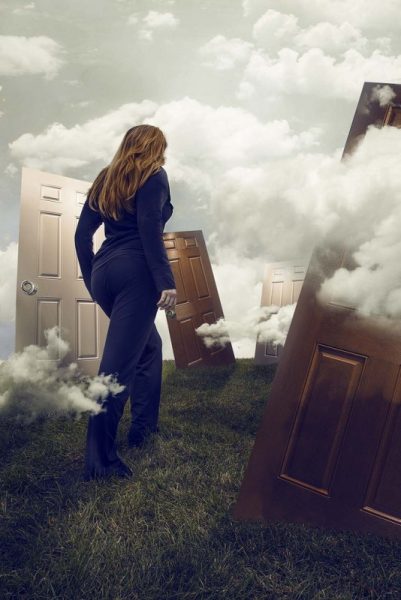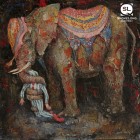The unconventional form of this story is different than other work you’ve published. Did the theme dictate the form as you began, or did it adapt as the story progressed?
This was one of those stories that came out, almost intact, in a few hours. I’d like to have more of those. For a long time, I wrote almost exclusively in the limited third-person and was usually going for some kind of classic form. Nothing came quickly. After making some life decisions that forced me to stop taking myself so seriously, there’s been more room for voice and play in my writing. I see now that life isn’t an unbroken chain of beautiful moments; it’s more like some moments of beauty scattered through a lot of pain and absurdity. I think that realization allows new forms to develop naturally.
You’ve written frankly, and personally, about addiction before. Did you find this (arguably) indirect approach more or less difficult?
Fiction may always be my most comfortable genre because I can always hide behind the defense: “But it’s fiction!” I do see a lot of value in personal nonfiction, though. With the Internet, it seems like confessional writing has become the genre of our time, which I think is (often) great. It helps people talk about hard things and connect with others who have experienced them. I’ve been writing more personal nonfiction, lately, and even wondered for a while if it was going to become my genre of choice . . . But I think fiction will always be my first love.
Is addiction going to be a constant factor in your writing? By that I mean, is it unavoidable?
It’s been a factor in my writing for a long time, even before I consciously recognized it. Whether with food, relationships, work, or booze, a lot of my stories are about people engaging in damaging behaviors that are somehow outside their control. I’m now better able to identify what those behaviors are, which might make them easier to write about.
What was the best takeaway from your MFA program? The worst?
The best was the people I met there. I fell in love with one of them, and we’re now engaged. I also became close with a group of fascinating, brilliant people whom I hope will be friends for life. Another positive was the teaching experience. I discovered I love teaching and now do it as a profession, which wouldn’t have happened without the MFA program.
The worst was probably this new emphasis on making my writing marketable. (As a disclaimer, some people feel this wasn’t a big part of our MFA program, so this opinion is highly subjective.) Ironically, this idea was probably born out of one of the best parts of the program, which was that we were given fellowships. But I had this idea that the program had invested in me, so I needed to repay that investment somehow. I find it hard to feel inspired while also thinking about selling myself and my work. I’ve learned since graduating that I need to separate financial motives from creative ones if I want to continue writing.
What other contemporary art (outside of literature: TV, movies, etc.) inspires you?
This is a great question. I’m inspired by films with natural, unscripted dialogue—almost to the point where it can be hard for me to watch something scripted. I love the movies of Mike Leigh. His film Another Year is a masterpiece (and also peripherally about alcoholism). I read that he goes through a long process with his actors where they sit around discussing every detail of their characters—from their childhoods to what they buy at the grocery store—and then he just puts them in a scene and films what they do. The result is real life inside artistic constraints. I’d love to find a way to get that on the page.
What are you working on now?
I get superstitious around this question, as if talking about unfinished things steals away the incentive to actually write them. But I’m working on more short stories and the beginnings of a novel.



 The core workshop of SmokeLong Fitness is all in writing, so you can take part from anywhere at anytime. We are excited about creating a supportive, consistent and structured environment for flash writers to work on their craft in a community. We are thrilled and proud to say that our workshop participants have won, placed, or been listed in every major flash competition. Community works.
The core workshop of SmokeLong Fitness is all in writing, so you can take part from anywhere at anytime. We are excited about creating a supportive, consistent and structured environment for flash writers to work on their craft in a community. We are thrilled and proud to say that our workshop participants have won, placed, or been listed in every major flash competition. Community works.